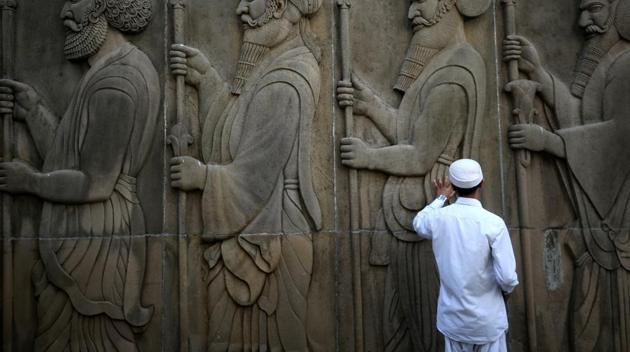Ban on Parsi newsletter shows an old press tradition
The ban on the distribution of the newspaper in community housing estates, which houses nearly 5,500 families, was ordered by the BPP’s chairperson Yazdi Desai
Last week, HT had reported that a newsletter, which was critical of the management of the Bombay Punchayet (BPP) – the largest Parsi-Zoroastrian representative body – was banned from some housing colonies, called baugs, controlled by the trust. The fortnightly, which has been publishing reports about alleged corruption in the BPP, claims a circulation of a few thousands.

The ban on the distribution of the newspaper in community housing estates, which houses nearly 5,500 families, was ordered by the BPP’s chairperson Yazdi Desai. Though we were told that the newsletter was banned only in one housing estate in south Mumbai, the publication’s editor said that he was planning to take to take up the issue of the ban with the BPP board.
There is still a debate whether the banned publication can claim the status of a newspaper, or even a newsletter, and there is speculation about the identity of the publisher, but bans of this sort are nothing new in the bitter politics of the trust.
Desai’s group is familiar with such bans. In April 2007, after the adoption of a Bombay high court (HC) scheme that allowed every adult member of the community to vote in elections to select trustees (earlier, only donors to the trust and area associations had voting power), the group had planned to contest elections to the trust. Their periodical, published by their group, WAPIZ (World Association of Parsi Irani Zoroastrians), was banned from the baugs.
Desai’s wife Anahita, who edits the WAPIZ newsletter, which is still distributed with a city newspaper, though only occasionally now, said that when they started publishing the supplement, they were stopped from distributing it in the trust’s housing estates.
“We were told that it was for private circulation and that we need to take the permission of the landlord (the BPP). That was the reason why we decided to distribute the supplement with a newspaper,” said Desai.
For a group numbering less than 40,000 in the city, Mumbai’s Parsis have a disproportionate number of newspapers and journals reporting about their issues. Desai said the reformist and orthodox section in the community have their mouthpieces.
“Some of these are newsletters and not newspapers. Also, the BPP has become a political body, with elections and adult franchise. Because it a political body there are factions and rivalry; it goes with the territory,” said Desai.
A former BPP chairman, who was a senior lawyer in the HC had told HT that community journals were common even in the 19th century, when issues on religious and social rules generated fierce debates, like it does now.
This engagement in issues of community interest means that the Parsi press has a history as old as the Indian newspaper industry. The first newspaper in an Indian language was the Gujarati daily Mumbai Samachar, published in 1822 by Fardoonjee Marzban. The newspaper is still being published, though its readers also include non-Parsis. The Jam-e-Jamshed, one of the oldest newspapers in the country, is now a bi-lingual, with a section in English for the new generation of readers not familiar with Gujarati. The fortnightly Parisana is published as a magazine. A more recent addition is Parsi Times, a weekly with English and Gujarati sections. Its owner, Kersi Randeria, who is also a trustee in the BPP, said, “There is a reasonable amount of interest in what happens in Parsi baugs. We came up with the Parsi Times particularly for the younger generation.”
The list of defunct publications is longer. Kaiser-i-Hind started in 1882 to campaign for reforms but closed down after a few decades. In 1851, Independence leader Dadabhai Naoroji started the Rast Goftar that campaigned for religious and social reforms. He also published a journal called Dharma Marg Darshak that discussed religious issues. There were also lesser-known publications called Chabook (whip) that wrote about corruption in the BPP. Then there were the Parsi Voice, Parsidom and Parsi Punch.




